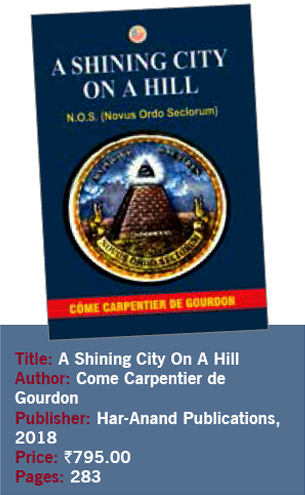WITH general elections just a heartbeat away, what can be more topical than analysing various aspects of an electoral democracy? This is what ‘Why India Votes?’ a book edited by Mukulika Banerjee and published by Routledge Taylor & Francis Group, does.
But unlike the dime-a-dozen psephology groups and research organisations which combine with news channels and print publications every now and then to speak to samples and gather statistical data to gauge the mood of the electorate in the country and its national capital, Banerjee, Associate Professor in Department of Anthropology in South Asia Centre at London School of Economics and Political Science, delves deeper into the psyche of Indian voter to find answers to more fundamental questions like ‘Why India votes?’, ‘What does the campaign look like?’ “What is the language of political discourse?’ and, ‘What is the culture of the polling station?’
You may find the questions elementary but go through the answers collected by her dozen-member team of anthropologists, which fanned out across the length and breadth of India in the last parliamentary polls (2009), and you will realise the significance of her ethnographic approach to the largest democracy in the world. Jonathan Spencer, Professor of the Anthropology of South Asia in University of Edinburgh, who has written the foreword for the 286-page book, claims that “in rushing to the end of the story,” (election) analysts who focus on “who won, and by how much” miss so much that is just possibly of even greater interest: ‘the effervescence of the crowds at political rallies, the uncertainty that consumes even the most confident participant, the oratory, the spectacle.’
Banerjee makes a strong case for why she studies India and not United States of America and other western democracies which are the taken-for-granted-norm. “Indian democracy is robustly healthy, particularly in its rising or steady voter turnouts, which are in sharp contrast to the declining turnouts in older democratic regimes of the North Atlantic world,” she writes in the introduction to the book. She claims that “elections in India are carnivalesque, in their noise and colour and in the way in which the normal rules of life are turned upside down. Yet it is an unusual carnival, for rather than creating anarchy, it brings about a far more orderly and structured manner of living than the normal unruly conditions outside the campaign.”
The book discloses how people have a “whole gamut of possible reasons for voting – from naked instrumentality (‘I vote for X so that he will protect me from the police’) to bureaucratic existentialism (‘I vote to prove that I exist’)”. It throws light on the vernacular idioms people use to identify political parties and their candidates, observes how poor voters look at the polling booths housed in paint-peeled schools and community centres as the greatest levellers and how questions of citizenship, independence, caste, aspirations of masses, distribution of doles, failures of political leadership come into play when the anthropologists ask voters why they exercise their franchise.
Priced at Rs. 495, the book combines intensive field work at the local level in the states of Delhi, Uttar Pradesh, Bihar, West Bengal, Chhattisgarh, Madhya Pradesh, Tamil Nadu, Kerala, Maharashtra, Gujarat and Rajasthan with statistical materials at the national level and comes up with startling revelations. This book revitalises the great tradition of political anthropology. Go grab your copy in case you wish to know more about how democracies in India and elsewhere work.
















































